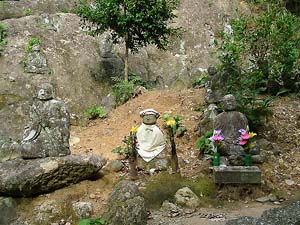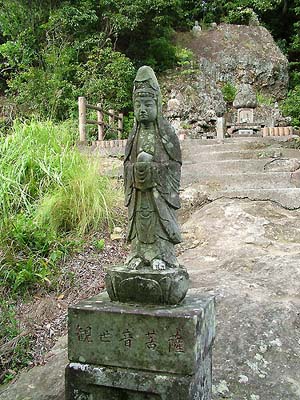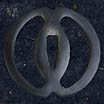12: Shitaku no oite nosomu kokoro nashi: - Do not have preference to a particular domicile.
During Musashi's training, this is a realization he received. In Kojin Kakushoshi's Hanyashin go Kogi he had to understand Bosatsu's weak point whilst training. |
|
|
13: Mi hitotsu bishoku wo konomazu - As to the choice delicious food with relation to society in general. Never eat delicious food for your own body and feed on luxurious food to your hearts content. The food the public eat can be described as "general food" There are four different types of meals. For example there are rice noodles and spaghetti. Because it is divided we can split food into sections. We can't eat all the food at once for one year. We can't eat lots of food for a day all at once so it 'must' be divided. So that the reason we have to divide it into sections called meals. In a world that has these ordinary meals is the one you are eating the only meal? This can't be true. This has something to do with our sensibility. Put into words we eat food that has connections with meals This means the six roots. |
For example with eat food with the eyes. It needs to look attractive. If we put our food in the dogs bowl put our side dish (rice) on the cat's dish? In this cast we would not have an appetite for it even if we were really hungry because it to us would be disgusting. We literally need to "see" our food to. Eating in the dark it would lose its taste. We like to eat in a bright area with food served nicely on clean dishes, that's what we describe as good appetite.Not only do we eat with the eyes, we eat with the ears too! If your father shouted at you during a meal you would lose your appetite. On the other hand, if you eat a meal with ambient music playing in the background or chatting away to close friends it make the meal even tastier. That's why we can relate the ears to eating. |
 |
We also eat with our nose too. If we think the food smells bad we cant swallow it. These are some aspects of the six rooted connection. For example if you were going to be executed and received and were served rare delicacies of all description, you would not feel like eating. If you have cancer and know you will not live more than three months you will feel depressed and not have a good appetite. We eat because we have hopes. If we have no hopes we will not be able to eat. Hoping is part of eating. It means that you discriminate when you eat. Look at discrimination and food considering the liking of a meal that your own mother has made, a radish that you eat that has come from your own garden. You will have an indiscriminate liking for such meals. Such is eating way. In Buddhism eating means that you also taste your environment, your surroundings. |
When you
invite someone for dinner you will cover the table with a nice tablecloth,
then serve the meal up on beautiful plates and dishes. It conjures up "meals of the heart" You can feed and your heart it will grow. But of course you are not literally feeding the heart, but the body. In reality the body is fed but the heart does not grow and will remain the same forever. In this humans desires and selfishness never change for the better. |
| If we look at this out of the
ordinary meal with concern to Buddhism the heart grows little by little
and you receive the way forward. An out of ordinary meal is called Zen
Teishoku. Zen is the self control and Teishoku means joy or pleasure.
its describes a meal for the heart, of the mind.
Not only for yourself but to recommend others to receive Buddhist teaching or an improvement inside yourself to do even better. having that kind of wish will come from the energy of ones heart. Do not let yourself be destroyed by desire. To release yourself from desire and set yourself free. The things above describe the
energy of the heart. But how about nowadays? In writing about the situation
of Danshoku (Fasting) We some time see children that are really starving inside themselves. These kind of children would perhaps go as far as killing their own parents or a homeless defenseless person. We can think of it as a fat boys painting of hell. Those who had only fed delicious food to their boy but never fed his mind. This is a reality of a Japanese effected society. So according to this Musashi never ate delicious food for the body alone and also gave away delicious food from the heart too.
|

